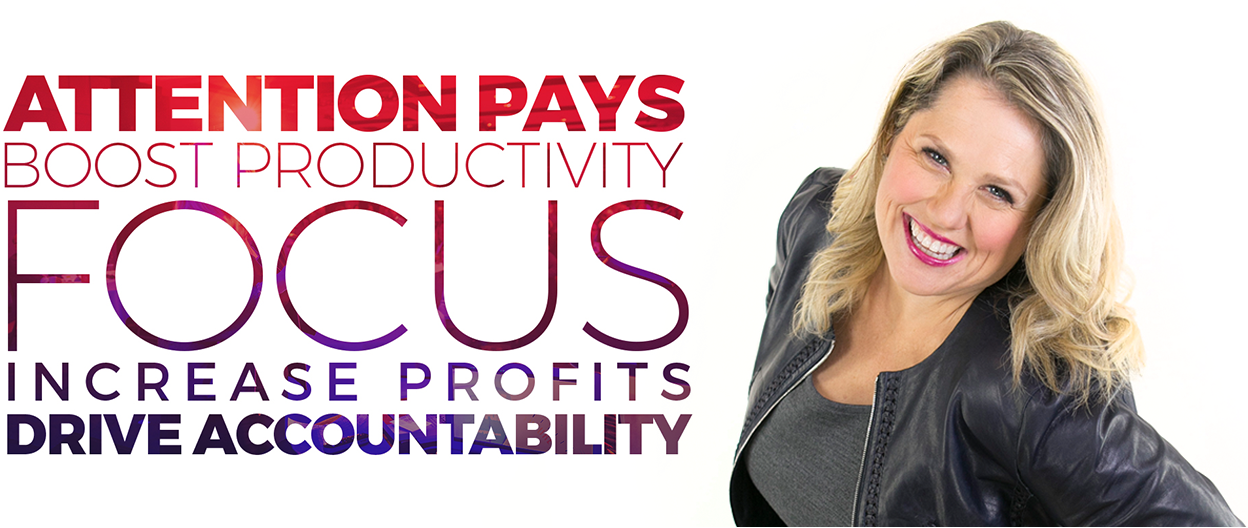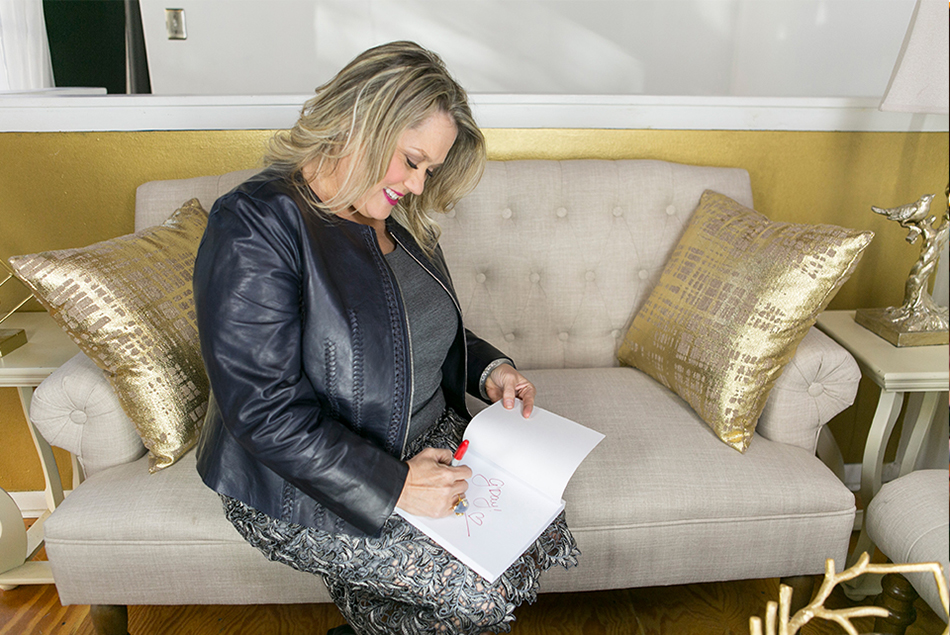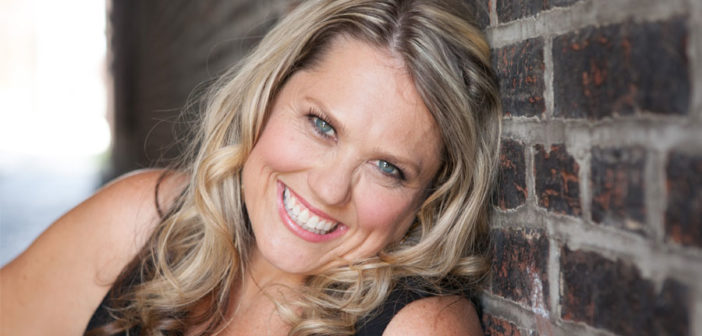We mean you will be keen to know Neen
Boundless energy, quick witted and always gives you her full attention(Surprise??). That is Neen James for you. Author of books like Folding Time and Attention Pays.
Neen brings with her the consummate ability to hold an audience, engage them, influence them and most importantly impact them. In 2013, she was named among one of the Top 30 Leadership Speakers by Global Guru because of her work with the likes of Viacom, Comcast, Abbot Pharmacuetical among other brands.
Here is BrandKnew in a freewheeling conversation with the inimitable Neen James.
BK: Could you share a bit about your growing up days, your family etc.? And the quintessential Aussie legacy? And why/how the move to the US?
NJ: I was born in really small town in Australia, with only one traffic light. We moved around and ended up in Sydney, still my favorite city in the world living on the harbor and each day enjoying the Sydney Harbor Bridge and Opera House in our front yard. I miss the water and the activity. My honey was offered an opportunity to work in the US so I closed my business and set up in the US, with no clients, no network … and no money to buy shoes; I built my business one connection at a time.
BK:What triggered your interest in writing? And how you remain laser on Focus and Productivity that seems to be at the fulcrum of all the books you have written thus far?
NJ: When I was in primary school the principle gave our class a picture of a rainforest and asked us to write a story about it to win a competition. I decided to write a list of adjectives to describe the picture and see if I could be clever and make it a story, I won! I discovered a love of words very early in life. I have never considered myself a writer but… I do love to share blogs and videos and that’s how my first book was created, a series of blogs bound together. Attention Pays (published by Wiley) is a message I wanted to share with the world to help leaders understand how attention pays and drives profitability, productivity and accountability. All of my work revolves around focus, productivity and attention because I believe our relationships with time and attention determines our success.
BK: Here’s a clichéd one: of the books you have written Folding Time, Secrets of Super-Productivity, Strategic Networking and Network or Perish and now Attention Pays; which do you deem your most fulfilling and why?
NJ: Easily Attention Pays™. I realized years ago in my career (and writing) you can’t manage time, BUT you can manage your attention. So my work evolved, as I don’t believe in time management. It’s NOT about time management; it’s about attention management.
BK: Just as it is said that the map is not the territory, busy does not equate to productivity. What is your take on this?
NJ: In my work with corporate leaders across the globe (and across all industries) I often see them doing ‘busy’ work but not strategic work. It’s easy to fill our days answering emails, attending meetings and moving paper… that doesn’t progress our goals. We need to be clear on who deserves our attention, what deserves our attention and how we will pay attention in the world. Attention is the key to productivity.

BK: Your most recent book ‘ Attention Pays ‘ comes at a time when there is a high amount of deficit– of time, attention, resources. And surplus of information, goods, services, choice– what was the trigger point that drove you to write the book?
NJ: I have been obsessed with productivity and focus my whole career. When I realized we can’t manage time, we can only manage our attention I started to research this, held focus groups, interviewed CEOs and realized the biggest challenge in business today is distraction and the inability to prioritize. This led \ to finding solutions for my clients; the book Attention Pays™ is the result of all that work.
BK: Greg McKeown had some time back published a work called ESSENTIALISM: The Disciplined Pursuit of Less and trend forecaster James Wallman’s Stuffocation touched upon related areas. What would be your thinking on their work and do you see some co relate between their work and what you have articulated in Attention Pays?
NJ: Both are brilliant writers and their work is important in the world in helping all leaders be more productive and focus on what really matters. That’s the goal of Attention Pays™ to get people to focus on the people, projects and priorities that really matter so they can be more productive, be more accountable and be more profitable.
BK: Amongst multiple demographics where do you see attention being the bigger problem: GenZ, Millennials, GenY, Baby Boomers? Why do you attribute that to?
NJ: Attention is not a generational issue. Younger generations get blamed for their lack attention and I don’t think that’s fair, or correct. They pay attention in a different way than generations before them. I believe we can learn from every generation. The way we communicate might be different across generations, that doesn’t make it better or worse, just different. Older generations (Veterans and some Baby Boomers) love face-to-face meetings. Baby Boomers love to have ‘team meetings’ and copy everyone on an email. Gen X like to work independently and prefer no meetings, just send them an email and they are happy and leave them alone to do their work. Gen Y enjoys shorter communications in text and on social and often in a group. Each generation thinks their way of communicating and paying attention is the right way, and often expects other generations to do the same – that’s not the way the world works. The best leaders I know adapt their style and attention to each situation to stand in service of the people they are with. It also means now that leaders need to be more flexible in the ways they pay attention and communicate and leverage different tools and methodology.
BK: Given that it seems to be getting bigger as an issue across society and straddling SEC, across the globe, do you recommend that attention as a subject gets regimented as curriculum in schools in formative years? As they don’t say “ It’s the taught that counts “.
NJ: That would make my heart so happy if we shared strategies at school to pay attention more intentionally. I’d love that. I also think it would be great if we increased education in listening skills, public speaking and personal presence. All these important topics are often taught in the workplace and if we could introduce students to these concepts earlier in life they would be able to contribute even more in their schools, church, temple, communities and ultimately in the workplace.

BK: Do you see the Japanese practice of Ikigai help bring Attention to the mainstream since it is at the intersection of your values, things you like to do, and things you are good at? That hopefully will not leave room for much distraction? What are your views?
NJ: I love that Ikigai is a personal reason to get up in the morning. Everyone has a different reason. If you know your purpose, your motivator, your driver you are more likely to invest your time and attention to achieve your goal. My philosophy is, “I do what I love, with people I love, in places I love”. When people are operating in the world doing the activities they enjoy, surrounded by people they enjoy it’s easier to pay attention and not be distracted. If leaders have teams that are bored or not challenged enough they will find it hard to get them to pay attention.
BK: In a post-truth world, we look certainly to be in an age of ‘ Authenticity Drought ‘- is the malaise stemming from lack of attention?
NJ: Public opinion is being shaped in so many ways with media, social media and private conversations. People might be tempted to only post the BEST version of themselves online with social media and the ‘look at me’ culture. We have never been more connected online, and yet disconnected from each other. Social media can help those who are lonely and it can also magnify the loneliness. A few strategies to help overcome this include putting down devices and looking people in the eye when we talk with them, setting up agreements with people who are important to you to schedule activities and dates, write notes in your calendar to reach out to people who are important to you, restrict your time online and ensure your work is completed before investing significant time on social media. It would also be great if you show the real you on social. I love Instagram stories as it’s a peak behind the curtain of people’s lives (you will see me doing everything from wearing eye patches, working out, to meeting audiences around the globe). It’s a fun platform that is probably my favorite.
BK: You have slightly contrarian views on the conventional concept on ‘ Time Management ‘- do you want to elaborate?
NJ: I don’t believe in time management. You can’t manage time. Time is going to happen whether you like it or not. Time is the great equalizer. We all get 1,440 minutes in a day. Time doesn’t care how long you have been a leader, what you do for your profession, what is your title. Time doesn’t care. You can’t manage time, but you can manage your attention.
We don’t have a time management crisis, we have an attention crisis.
BK: Would you consider it an advantage to begin one’s career as a journalist/writer in the sense that it builds up an innate ability to be curious, dive deep, understand an audience and create narratives that interests, captivates, engages and influences? Apart from the ability to see emerging trends?
NJ: It’s funny you ask, in high school I wanted to study journalism but didn’t get the university entry score needed (I was 20 points short) and in Australia without that score, I couldn’t do the course. The skills journalists develop and their sense of curiously is something we could all benefit from. These skills are great to teach kids from a young age so they approach the world with a sense of awe and wonder. I have a tattoo inside my right wrist that says ‘Be Ah-Mazing’ – it’s a daily reminder that I want to be in awe and wonder of the world in which we live and pay attention.
BK: What does Neen James like doing best: Writing, Speaking, Consulting or spending time with family in Australia?
NJ: All of the above! My favorite thing is to be standing on a stage serving people around the world and giving them strategies to pay attention and get more done. Meeting audience members after a speech, signing books for them, hearing how the message is something they can apply both personally and professionally, that makes my heart full.
BK: Unofficial Champagne taster? Not a bad space to be in. How did this fizz come about?
NJ: Ha! It’s a self-designated title and one I love! Champagne has always been my drink of choice. I love everything about the taste, the bubbles, the glassware, the history, and the sense of celebration. It’s funny because when I moved from Australia to the USA I would always order champagne and often people would ask me “What are you celebrating?” My reply ‘life’. In the US, champagne is a celebratory drink, for me it’s my go-to everyday, every situation drink.

BK: What makes Neen James go ‘ Wow, another day at work ‘?
NJ: That moment before I walk onto the stage (standing in the wings or at the bottom of the stairs) and I say to myself “I am SO excited, I can’t wait to share this message with them” – it’s the combination of excitement, adrenaline and knowing that part of my calling on this planet is to help the world pay attention to each other so we can deepen relationships with those we care about, so companies can make more money, so leaders can serve their teams more effectively and so we can take care of this planet we live on.
BK: Which are some the books that have inspired you in your career thus far and which are the ones that you look forward to reading?
NJ: My business bible is called Thought Leaders Practice by Matt Church (any book he writes is worth reading, he’s one of the greatest minds I know and his work is always thought provoking and practical). I recently read some great books that I have incorporated into my business including Joey Coleman’s Never Lose a Customer Again and Melissa Agnes Crisis Ready. I would easily have 100+ books on my shelf I still haven’t read, if someone suggests a book, I buy it … the reading pile is huge! I try and read 4 books a month.
BK: What does Neen James do in her spare time?
NJ: When I am not on stage you might find me on the back of a Harley Davidson, zooming around in red cars, planning my next overseas adventure, sipping champagne with people I love, riding my Peloton bike, running around the streets where I live, face-timing with friends and family around the globe… or my ultimate indulgence is reading a magazine cover to cover on my back deck in the sun.
–
Seeking to build and grow your brand using the force of consumer insight, strategic foresight, creative disruption and technology prowess? Talk to us at +9714 3867728 or mail: info@groupisd.com or visit www.groupisd.com

